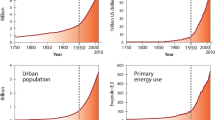Abstract
We keep talking about the increasing presence of technology in human life, but this discourse is always reduced to the description of a fact that is there, but may not be there, or may not have been there at all. Going beyond the ways in which philosophies of history (for instance, the Hegelian one or the Marxist one) have articulated a “necessary” development within history, this article foregrounds the inconsistency of this kind of “necessity”, but, at the same time, shows how the reflection on dominating technology cannot be limited to a simple description of this phenomenon.
Access this chapter
Tax calculation will be finalised at checkout
Purchases are for personal use only
Similar content being viewed by others
References
Gentile, G. (1922). In H. Wildon Carr (Ed.), Theory of mind as pure act. London: Macmillan.
Gentile, G. (1923). Sistema di logica come teoria del conoscere. Bari: Laterza.
Leopardi, G. (1923). In G. L. Bickersteth (Ed.), The poems of Leopardi. Cambridge: Cambridge University Press.
Leopardi, G. (1983). The moral essays (P. Creagh, Trans.). New York: Columbia University Press.
Leopardi, G. (2013). Zibaldone. In M. Caesar & F. D’Intino (Eds.), The notebooks of Leopardi. Londra, Penguin.
Nietzsche, F. (1968). In W. Kaufmann (Ed.), The will to power. New York: Vintage Book.
Nietzsche, F. (2005). Thus spoke Zarathustra. In G. Parkes (Ed.), A book for everyone and nobody. Oxford: Oxford University Press.
Severino, E. (1998). Il destino della tecnica. Rizzoli: Milano.
Severino, E. (2012). Capitalismo senza futuro. Rizzoli: Milano.
Severino, E. (2016). The essence of nihilism. London: Verso.
Severino, E. (2017). Il tramonto della politica. Rizzoli: Milano.
Author information
Authors and Affiliations
Editor information
Editors and Affiliations
Rights and permissions
Copyright information
© 2021 Springer Nature Switzerland AG
About this chapter
Cite this chapter
Severino, E. (2021). On the Meaning of Technology’s Domination. In: Chiodo, S., Schiaffonati, V. (eds) Italian Philosophy of Technology. Philosophy of Engineering and Technology, vol 35. Springer, Cham. https://doi.org/10.1007/978-3-030-54522-2_5
Download citation
DOI: https://doi.org/10.1007/978-3-030-54522-2_5
Published:
Publisher Name: Springer, Cham
Print ISBN: 978-3-030-54521-5
Online ISBN: 978-3-030-54522-2
eBook Packages: Religion and PhilosophyPhilosophy and Religion (R0)



